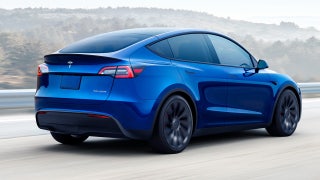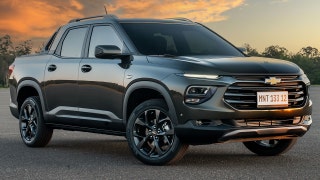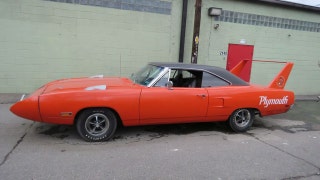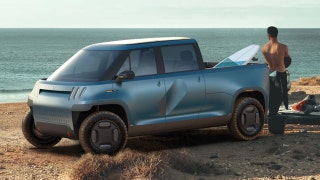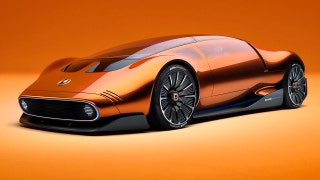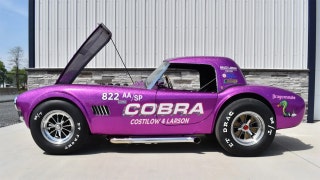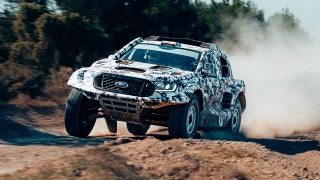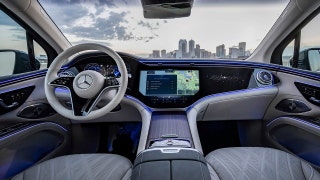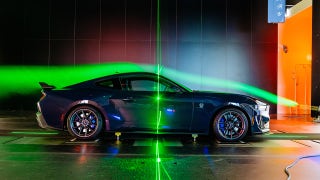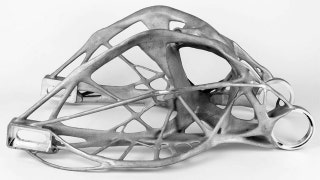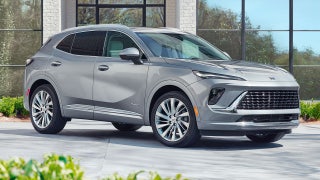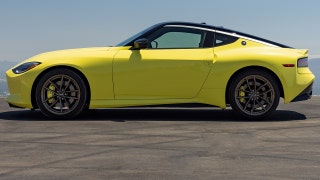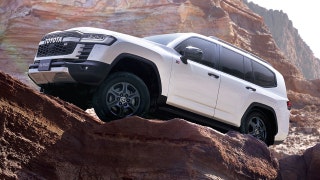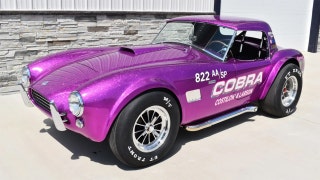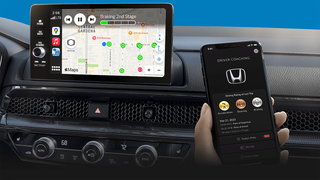New York City has more than its fair share of storied tourist attractions. There’s the Empire State Building, Statue of Liberty, The Naked Cowboy…and the list goes on. But one of its most popular isn’t in town at all.
Situated about an hour north of the George Washington Bridge is a wondrous place with the magical name of Woodbury Common…Premium Outlets. The outdoor shopping center is such a draw for foreign visitors looking to take advantage of a weak dollar that special buses run there from midtown Manhattan, helicopter service is available, and PA announcements on the faux-village’s faux-cobbled walkways are made in several languages, ranging from Portuguese to Japanese.
No mere collection of Gap and Carter’s stores, it veritably teems with high-end brands like Chanel, Versace and Vilebrequin. In other words: luxury for less. It’s very fitting, then, that the driving route laid out for the press preview of the Hyundai Equus took us up the Hudson River Valley and back from this center of savings.
For those of you who missed the debut of the Genesis sedan a couple of years ago, the Equus is Hyundai’s second step up the luxury car ladder, and it’s a big one. The $58,900 full-size bargain barge is nearly double the price of its successful-enough-to-try-it-again forebear. It may sound like a heady amount to pay for a vehicle from the company that also makes the cheapest car in America – the $10,705 Accent – but is literally tens of thousands of dollars less than its intended competition.
That bunch includes the Mercedes-Benz S-Class, Audi A8 and BMW 7-Series. But the Equus’ main target is the Lexus LS460L – which way back when filled the sensible shoes that Hyundai is currently trying on, and they fit pretty well.
As it stands, the Equus is almost exactly the same size as the Lexus at nearly 17 feet long and over 6 feet wide. Its design is much more reserved than Hyundai’s recent models, such as the Sonata, but exudes a classy presence that would look right at home – if not stand out - in the parking lot outside of a board of directors meeting.
The Equus is powered by the same 4.6-liter V8 available in the Genesis – a Ward’s 10 Best Engine award winner, two years running. A 385 horsepower rating places it in the middle of its class, but that’s when it’s running on premium fuel. If you don’t mind slumming it a bit, you can trade 1.8 percent of that power for a tank of regular. Most high-output engines these days don’t give you the choice. Then again, most high-output engines aren’t made by value brands.
Keeping in line with the simple pricing strategy of the rest of the Hyundai lineup, there are only two Equus models to choose from, and virtually no options. The entry-level Signature comes with a boatload of high-tech and luxury features including navigation, 17-speaker Lexicon stereo, adaptive cruise control, snazzy illuminated scuff plates and even premium floor mats – at no extra charge! Not having to haggle with a salesman over those may be enough of a reason to consider buying this car.
Step up to the $65,400 Ultimate and you give up one coach seat – the hump – to gain an exclusive First Class section. This comes in the form of a reclining bucket with footrest on the rear passenger side, complete with a button that slides the front seat forward and folds it to offer you maximum space. Doing so effectively turns the car into a three-place sedan and gives you a dastardly new way to eliminate underperforming employees. The seat also has a multi-mode massage function, and is heated and cooled. Unfortunately, you have to share the refrigerator in the center armrest and single-screen rear entertainment system with any traveling companions seated in the erstwhile business class behind the driver. But since they don’t get the footrest or massage you still have plenty to lord over them.
Good stuff if you live in South Korea, where the Equus is the finest domestic car available and a common choice among chauffeured executives, but here the typical owner is likely to be found behind the wheel. Luckily, they’re well taken-care of, too, with 12-way adjustable seats that are unique to U.S. models, and – as if to drive the point home that the driver takes a back seat to no one in this mobile “chaebol” – also fitted with massage.
Rich-looking wood and top-flight leather dress up a neat, but unadventurous cockpit that’s let down a bit by low budget buttons, while the headliner is made from real Alcantara. From this vantage point, though, it’s what you don’t see that matters most.
You are not likely to experience a car that’s quieter than the Equus unless you try wearing earmuffs in one that’s parked in a garage in the middle of the desert while your wife is on vacation. (An unlikely situation, to be sure, but feel free to give it a shot before commenting.) Road and wind roar have been dialed down to new lows without the use of any electronic noise canceling trickery, and the engine is buttery-smooth.
It’s powerful enough, too. It doesn’t have the tire-squealing torque of the turbocharged BMW V8 in a 750Li, but neither does the six-cylinder found in the 740Li that still costs $15G more than an Equus, so you can deal. In fact, for non-Autobahn duty, this highfalutin Hyundai is more than up for just about any task that one can expect to be thrown at it, turns included.
Despite the presence of a Sport button, the standard active air suspension doesn’t exactly turn the Equus into a sports sedan, but it does an excellent job of keeping unwanted body movements at bay. Canyon roads are dealt with as easily as cavernous potholes. The only thing missing is all-wheel-drive for particularly snowy climes, but the electronic stability control deals with wet, leaf-strewn surfaces just fine.
The Equus is Hyundai’s first vehicle fitted with a lane-departure warning system, and its an advanced one that features haptic feedback. This is an increasingly common technology that gives vehicles the ability to physically communicate with their drivers. In this case, if you don’t react to any of the audible and visual warnings that you are drifting out of your lane, the seatbelt aggressively tugs at you to get your attention. It’s hard to ignore it.
In a price is no object comparison, the Equus isn’t at the head of this class, but the price is exactly the object of this car. All told, Hyundai figures that an LS460L similarly equipped to match an Ultimate will cost $89,200, and the Europeans can be optioned up much higher than that. Aside from the lack of rings, roundels and three-pointed stars on the hood, it’s hard to determine how it is $25,000 less of a car, though for some buyers image is enough. It wasn’t too long ago that Volkswagen tried to enter this segment with the excellent Phaeton only to be met with disastrous results.
To this end, while Hyundai isn’t creating a separate luxury division for the Equus, it is limiting the number of dealers who will sell them to 250. Each will each set up a section of their showroom dedicated to the car, and salesmen will make house calls for test drives, if requested. Instead of an owner’s manual, buyers will get an iPad with one loaded on to it along with an application that will allow them to schedule maintenance visits. “Visits” is actually the wrong word, because for the first 5 years or 60,000 miles their cars will be picked up and delivered to them wherever they please. Wear items like brake pads, rotors, wiper blades and batteries are included in the service, as is the use of an Equus or Genesis loaner while the car is in the shop.
Hyundai is aiming for sales of less than 3,000 in 2011, so even with the low sticker price, the Equus offers exclusivity – unless, or until it catches on. As someone who knows the map of Woodbury Common as well as the $35 Banana Republic Outlet jacket he wore to work today, I’d say the latter is the more likely outcome.
----------
2011 Hyundai Equus
Base Price: $58,900
Type: 4 or 5-passenger, rear-wheel-drive, four-door sedan
Engine: 4.6L V8
Power: 385 hp, 333 lb-ft torque
Transmission: 6-speed automatic
MPG: 16 city/24 hwy
